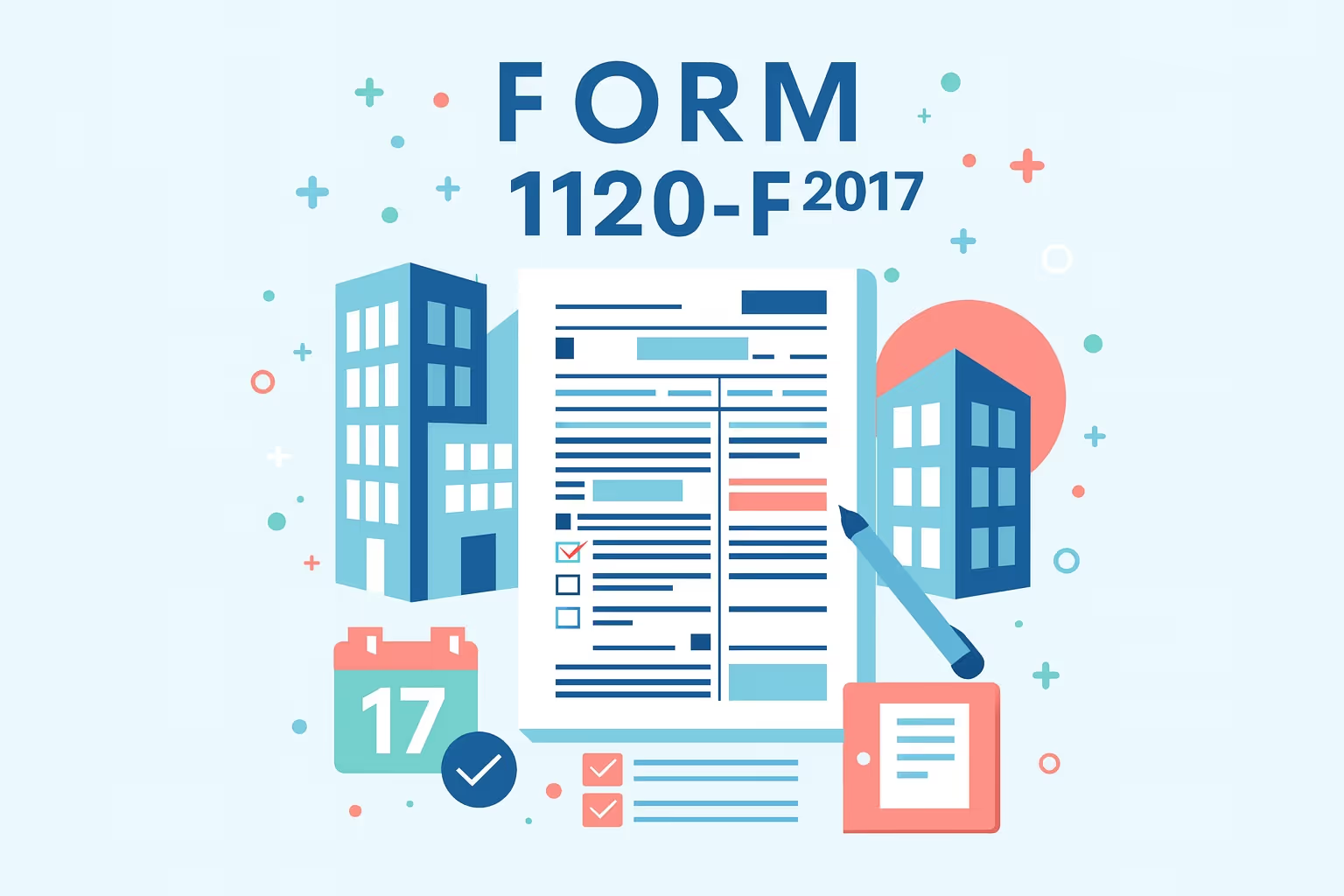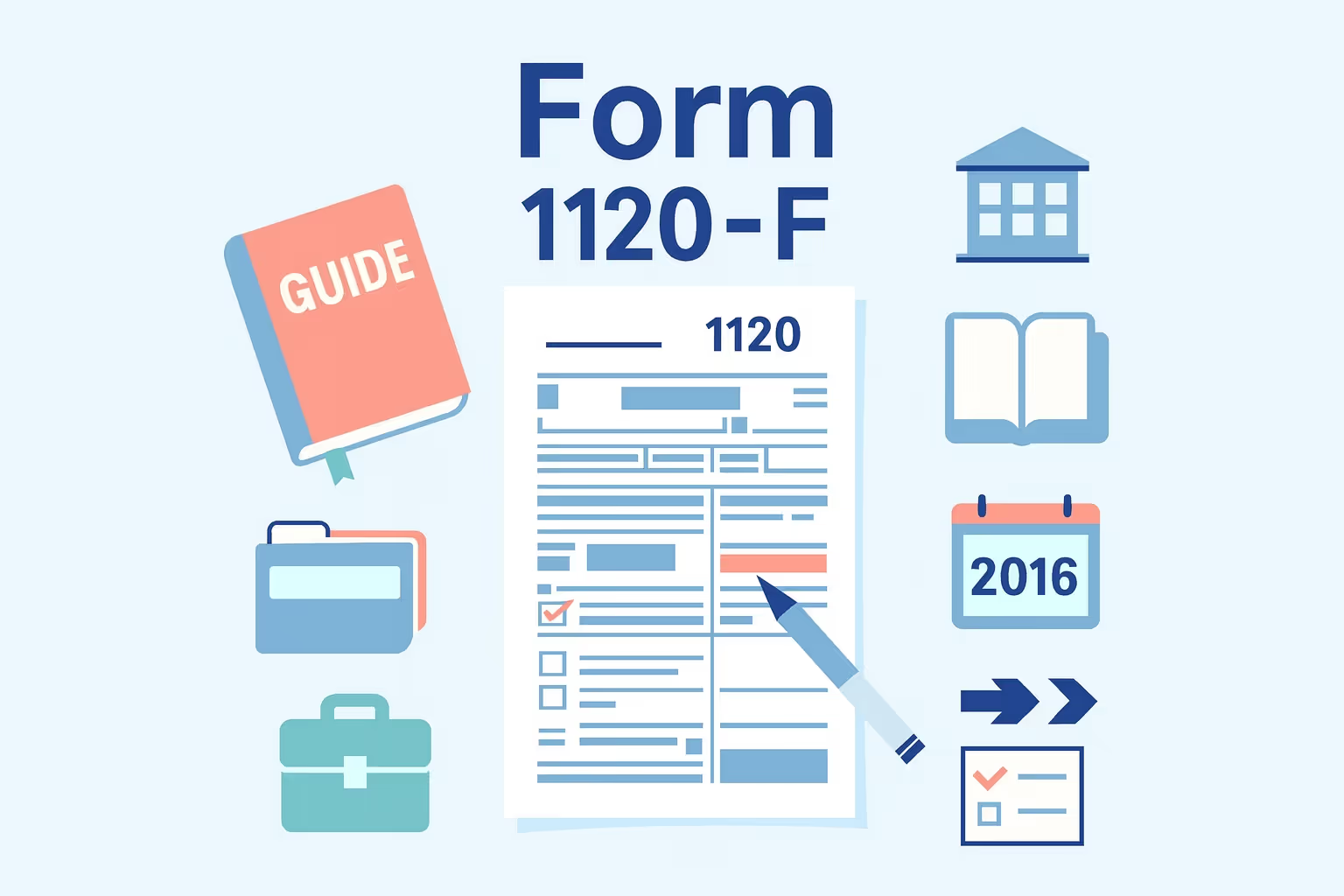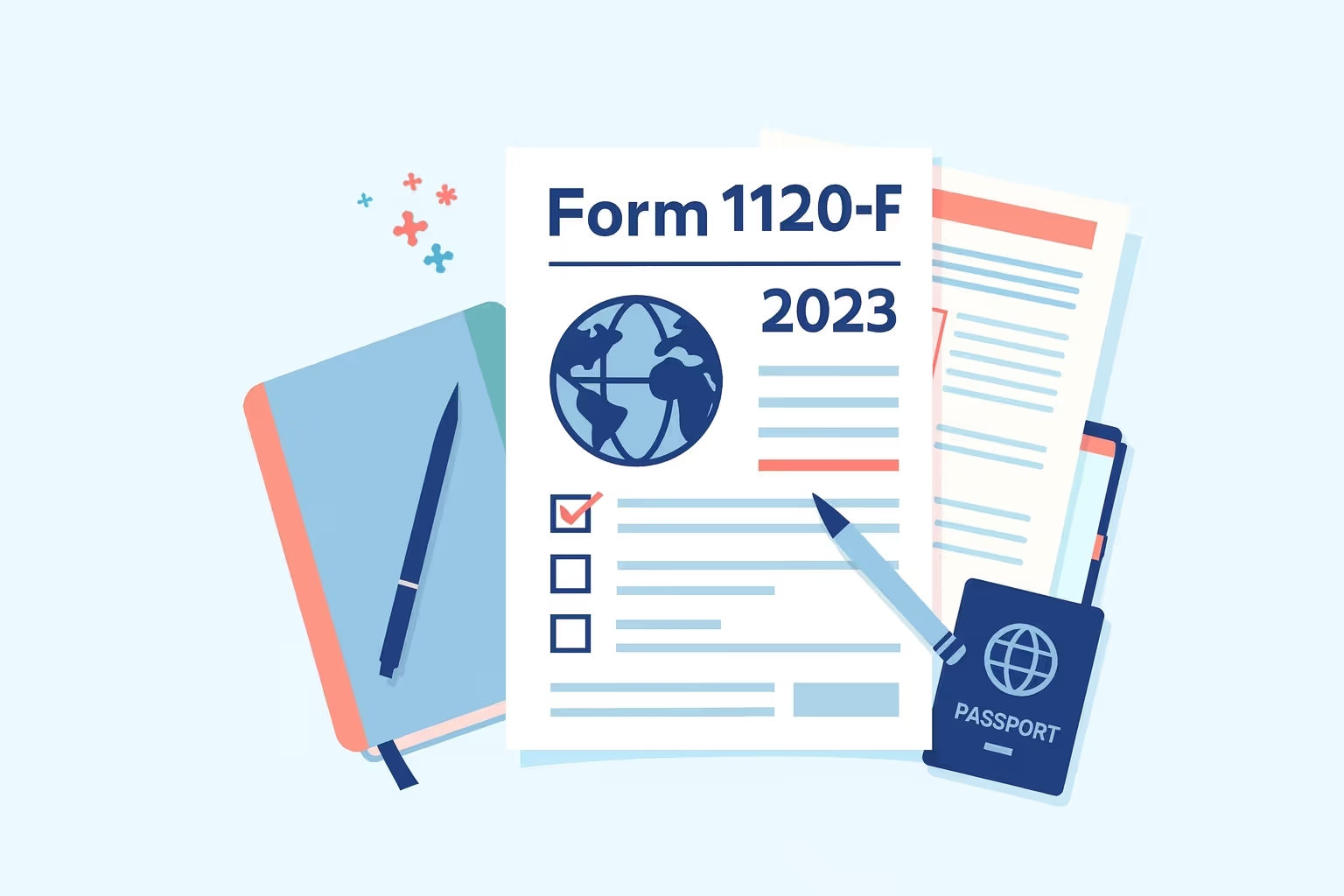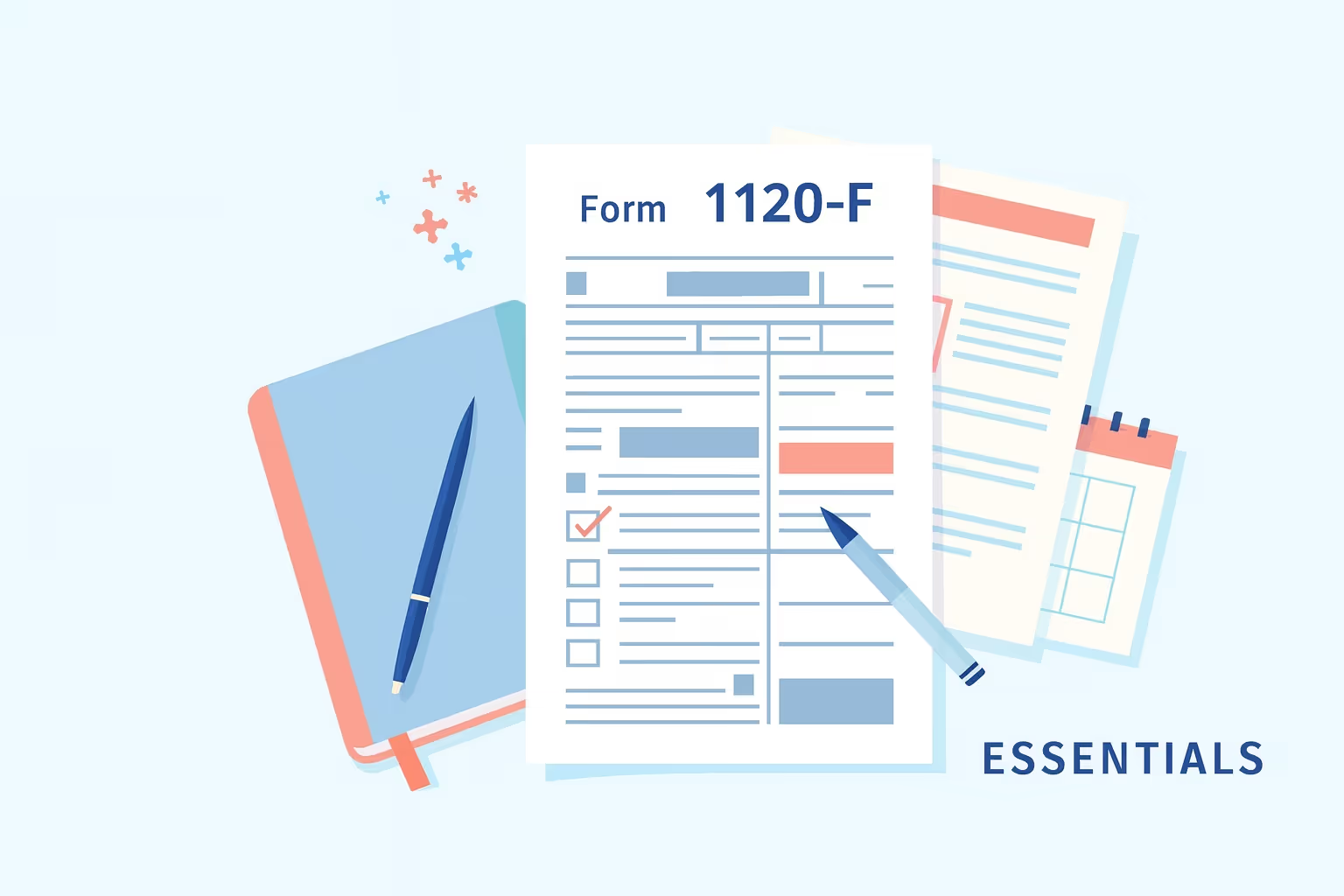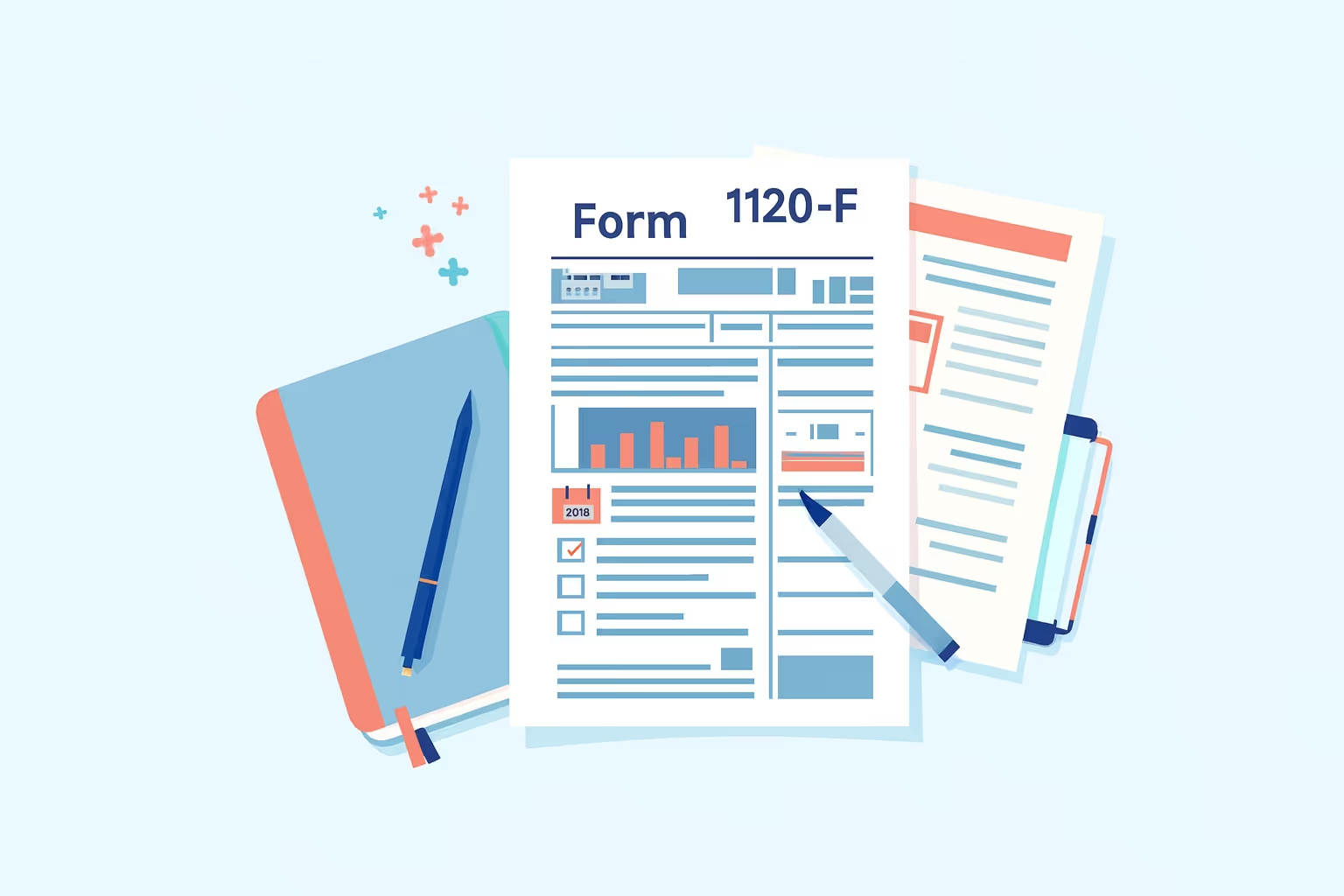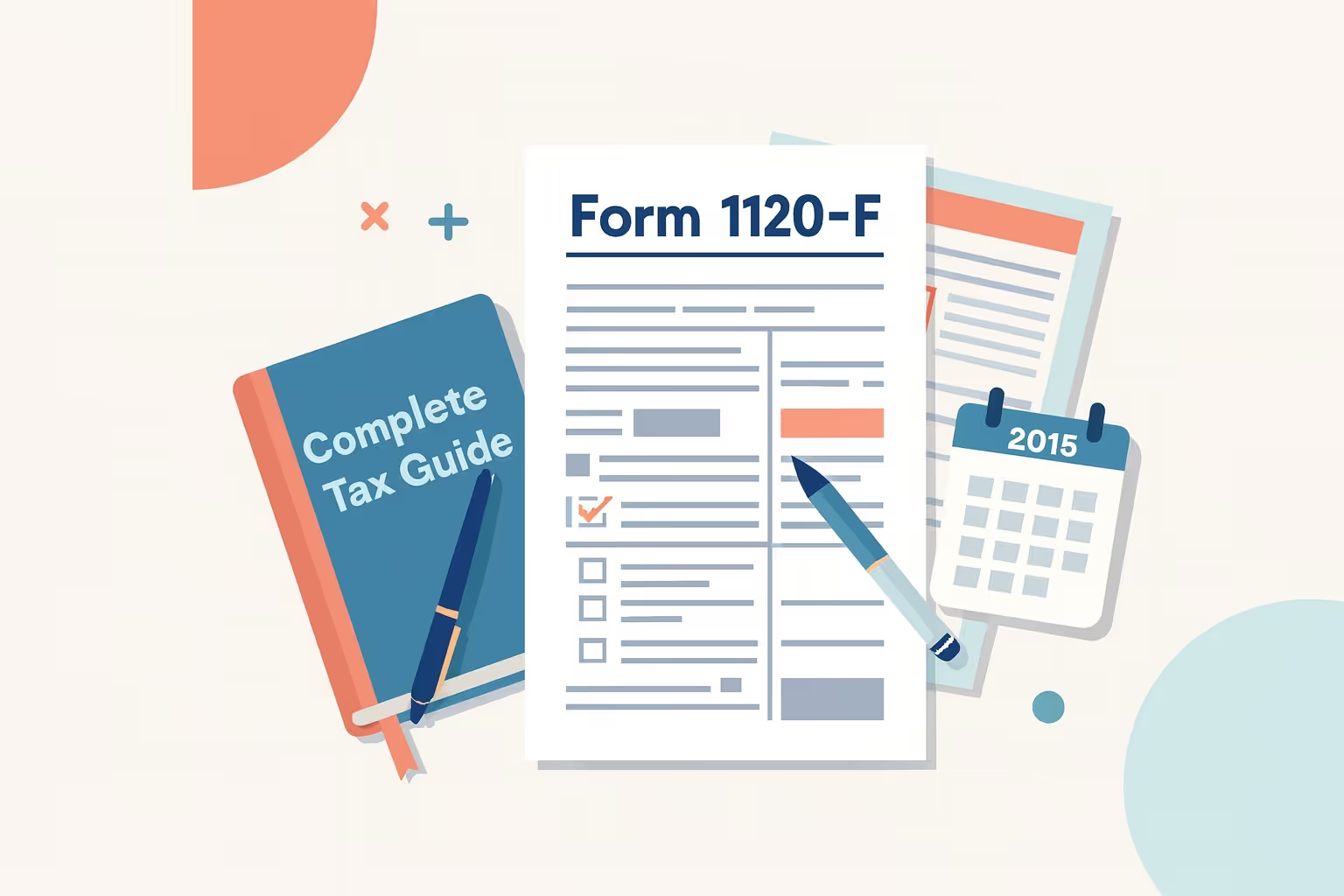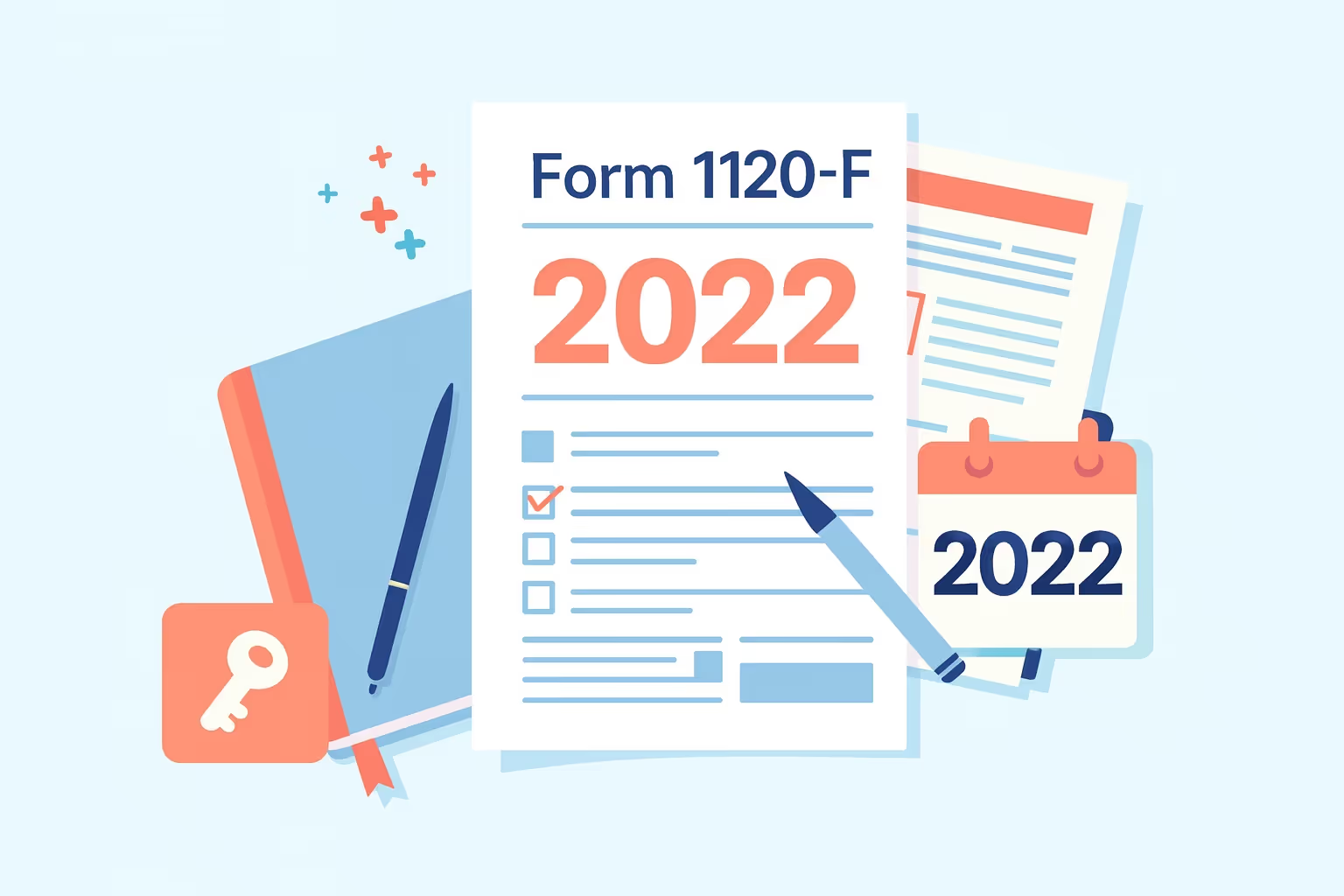
What IRS Form 1120-F (2019) Is For
IRS Form 1120-F (2019) is the income tax return required for foreign corporations engaged in a U.S. trade or business or earning effectively connected income. It reports gross income, deductions, and taxable income for federal tax purposes, ensuring compliance with the Internal Revenue Code.
Foreign corporations operating in the United States use this form to calculate income tax liability, branch profits tax, and claim deductions or treaty benefits. Accurate filing helps prevent issues with unpaid tax, late filing, or penalties while maintaining compliance with U.S. tax laws.
Learn how to file your Business Income Tax Forms online.
When Foreign Corporations File IRS Form 1120-F (2019)
Foreign corporations file IRS Form 1120-F (2019) when earning income effectively connected with a U.S. trade or business or maintaining operations for federal tax purposes. Filing ensures that income, deductions, and credits are reported correctly in U.S. tax law and the Internal Revenue Code. Many corporations submit late or amended filings to report unpaid tax, claim deductions, or correct errors in source income.
Common filing scenarios include:
- Required filing: A corporation files when it has effectively connected income within the United States.
- Amended return: A corporation submits this when earlier filings excluded gross income or related party transactions.
- Protective filing: A corporation files this when it is uncertain about future tax liabilities or treaty-based positions.
- Refund claims: A corporation submits these when it must recover overpaid withholding tax or estimated tax payments.
These filings maintain compliance and accurate tax reporting. The following section outlines the specific rules and updates applicable to the 2019 tax year.
Key Rules and Details for the 2019 Tax Year
Filing IRS Form 1120-F (2019) required compliance with several tax provisions that governed how foreign corporations reported income, deductions, and tax liability. The Tax Cuts and Jobs Act impacted the calculation of taxable income and branch profits tax for entities with effectively connected income.
Charitable and Special Rules
Foreign corporations that made disaster relief contributions between December 31, 2017, and February 19, 2020, received temporary deduction relief. These contributions were exempt from the 10 percent limitation, supporting accurate deductions for eligible taxpayers.
Penalty Framework and Treaty Rules
Returns filed more than 60 days late incur a minimum penalty of $435 and must be paid promptly to avoid interest charges. Corporations seeking treaty benefits were required to disclose positions precisely under U.S. Treasury regulations.
Step-by-Step Guide to File Form 1120-F (2019)
Filing IRS Form 1120-F (2019) requires precision and proper sequencing to ensure compliance with U.S. tax laws. Each step helps foreign corporations meet their federal obligations while accurately reporting income, deductions, and treaty-based claims.
1. Confirm Eligibility and Trade Activity
Verify that the foreign corporation is engaged in a U.S. trade or business or has effectively connected income that meets filing requirements.
2. Gather Documentation
Collect income statements, prior-year returns, and supporting documents, including data on related parties, gross income, and estimated tax payments.
3. Complete the Form
Use the 2019 version of Form 1120-F, along with the required schedules, such as Schedule H, Schedule I, and Schedule P.
4. Mail or E-File
Submit the completed return to the Internal Revenue Service Center in Ogden, Utah, or file it electronically through an approved system.
Common Mistakes and How to Avoid Them
Errors in filing IRS Form 1120-F (2019) often cause delays, additional tax liabilities, and increased scrutiny from the Internal Revenue Service. Careful preparation and review help foreign corporations maintain compliance and accuracy when reporting income and deductions.
- Using the incorrect tax year form: The corporation should use the correct version for the specific tax year to ensure accurate filing.
- Failing to claim deductions correctly: The corporation should review all required schedules to ensure every deduction is adequately reported.
- Failing to meet protective filing deadlines: The corporation must complete Form 8833 correctly and include all required disclosures.
- Misreporting effectively connected income or treaty benefits: Complete Form 8833 correctly and include all required disclosures.
- Neglecting related party disclosures: The corporation should identify related or foreign parties and file the necessary forms to remain compliant with relevant regulations.
Reviewing each form before submission ensures accurate filings and reduces the risk of penalties. The following section explains what occurs after Form 1120-F (2019) is filed.
What Happens After You File Form 1120-F (2019)
The Internal Revenue Service generally processes returns from foreign corporations within 12 to 16 weeks. Processing may take longer when additional supporting documents or clarification on effectively connected income are required. Corporations should monitor correspondence for updates or verification requests.
Interest and late payment charges accrue until all outstanding tax liabilities are fully paid. Late filers may also receive IRS adjustments related to deductions, treaty-based positions, or amended filings. Timely responses prevent delays and additional review.
Corporations unable to pay immediately may request reasonable cause relief or establish installment arrangements through a qualified tax professional. The following section answers common questions on refunds, deductions, and filing rules.
Frequently Asked Questions
What is IRS Form 1120-F (2019) used for?
IRS Form 1120-F (2019) is the income tax return required for a foreign corporation engaged in a U.S. trade or business. It reports effectively connected income, taxable income, and related deductions under the Internal Revenue Code. Filing ensures proper tax compliance and accurate calculation of income tax liability for federal tax purposes.
Can a foreign corporation still file a protective return?
A foreign corporation cannot submit a protective return after the original due date for the 2019 tax year. Protective filings must occur before the deadline to preserve tax benefits and deduction rights. Corporations that missed this opportunity should still file a standard Form 1120-F to remain compliant with the tax laws.
How are treaty benefits applied under Form 1120-F?
Treaty benefits depend on whether an active income tax treaty exists between the United States and the foreign corporation’s home country. These provisions can reduce withholding tax or modify how income effectively connected to U.S. trade or business is taxed. Proper disclosure of treaty-based positions ensures compliance with federal tax law.
What happens if there is unpaid tax after filing?
Unpaid tax continues to accrue interest and may result in additional tax liabilities under the Internal Revenue Code. Corporations may request an IRS payment plan through a tax professional to satisfy outstanding balances. Timely responses to Internal Revenue Service correspondence help prevent further charges or enforcement action.
How long does it take to receive a tax refund?
A tax refund for a properly filed 2019 Form 1120-F typically takes 12 to 16 weeks to process. Delays may occur when the Internal Revenue Service requests supporting documents or clarification of source income or deductions. Corporations should monitor refund status to confirm that all tax liabilities are fully satisfied.
For a detailed breakdown of filing requirements, eligibility rules, and step-by-step instructions, see our Form 1120-F 2019 Instructions: Compliance Essentials.




















